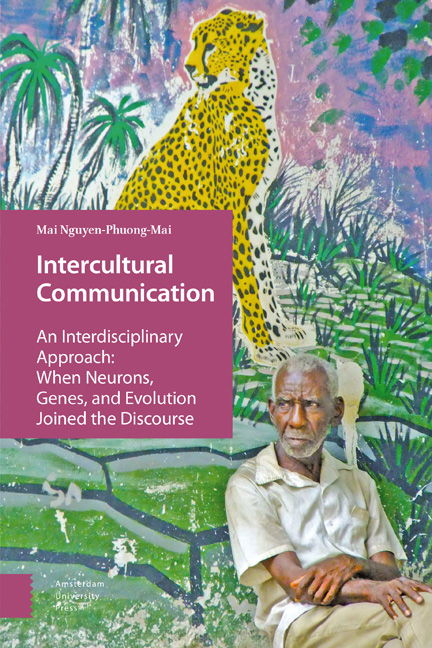 Intercultural Communication
Intercultural Communication Book contents
- Frontmatter
- Dedication
- Contents
- Preface
- 1 The Survival of the Most Cultured
- 2 The Evolving Culture
- 3 Stereotype – A Necessary Evil
- 4 Non-Verbal Communication – How You Make Them Feel
- 5 A Taxonomy of Diversity
- 6 Intercultural Competence – Creating Yourself
- 7 Diversity Management and Inclusion
- To the Readers
- 7 Takeaways from this Book
- Up and Coming Book from the same Author
- Notes
- Index of Names
- Index of Subjects
- Index of Geography, Culture and Religion
3 - Stereotype – A Necessary Evil
- Frontmatter
- Dedication
- Contents
- Preface
- 1 The Survival of the Most Cultured
- 2 The Evolving Culture
- 3 Stereotype – A Necessary Evil
- 4 Non-Verbal Communication – How You Make Them Feel
- 5 A Taxonomy of Diversity
- 6 Intercultural Competence – Creating Yourself
- 7 Diversity Management and Inclusion
- To the Readers
- 7 Takeaways from this Book
- Up and Coming Book from the same Author
- Notes
- Index of Names
- Index of Subjects
- Index of Geography, Culture and Religion
Summary
Everybody knows a joke that stereotypes a cultural group. The most common is the one about “Heaven and Hell”:
Heaven is a place where: The police are British, the chefs are French, the lovers are Italian, and everything is organized by the Germans. Hell is a place where: The police are French, the chefs are British, the lovers are Germans, and everything is organized by the Italians.
The fact that people in each cited country can laugh about this suggests that there is at least a grain of truth in this joke. In general, many of us have an overwhelmingly stereotypical perception that the Italians are both erotic and chaotic, and that the Germans are slightly better than the Italians at structuring their lives, but at the same time can be quite uptight about expressing emotion. As for the British, their gastronomy is not quite on par with that of the French (in fact, French cuisine is so tasty that it has been awarded World Heritage status by UNESCO), but the British are known for seeing authority as a professional privilege, while the French may perceive authority more as a right and make it less open to question.
Jokes aside, why do we form stereotypes? Are they all bad? How do stereotypes lead to prejudices and discrimination? What are the consequences? What can we do to deal with this tendency to lump people together, to judge? And what can we do to make sure this inner voice does not transform into discriminatory behavior? These are the questions that we will address in this chapter. These issues are essential in cross-cultural communication, not only because nobody can avoid stereotypes, but also because the biological mechanism behind them can both enrich and impede us, and, when stereotypes escalate to prejudices and discrimination, they can destroy us and others.
Stereotype
A stereotype is a fixed, oversimplified idea about a particular social category or collective culture that strongly influences our expectation and behaviors.
At the second level of the Inverted Pyramid model, all units of analysis (global, national, organizational and group culture) are subjected to this tendency of being seen as a homogeneous mass: what “men” and “women” can do, what “young” and “old” people can achieve, or how a particular “profession” can be an indicator of an individual's personality.
- Type
- Chapter
- Information
- Intercultural CommunicationAn Interdisciplinary Approach: When Neurons, Genes, and Evolution Joined the Discourse, pp. 87 - 122Publisher: Amsterdam University PressPrint publication year: 2017


